Meet Pavel Durov, the tech billionaire who founded Telegram
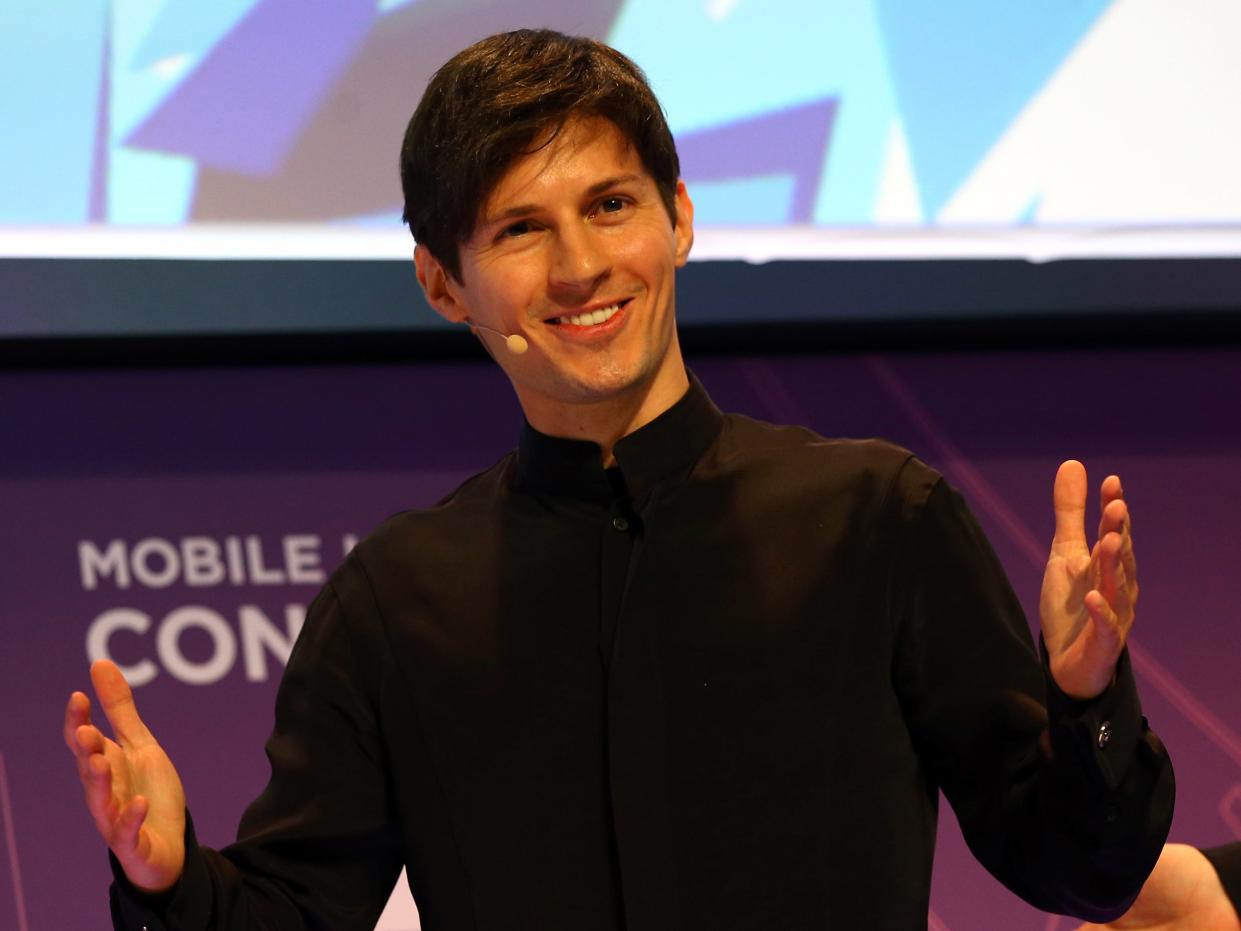
Pavel Durov, the founder of Telegram, is worth $15.5 billion.
French authorities arrested Durov in late August amid an investigation into criminal activity by Telegram users.
On Thursday, he spoke out for the first time since his arrest in a post on Telegram.
Editor's note: This story first appeared in March 2022 and has been updated to reflect the most recent financial figures and Durov's arrest in France.
Pavel Durov is the founder and owner of messaging app Telegram.
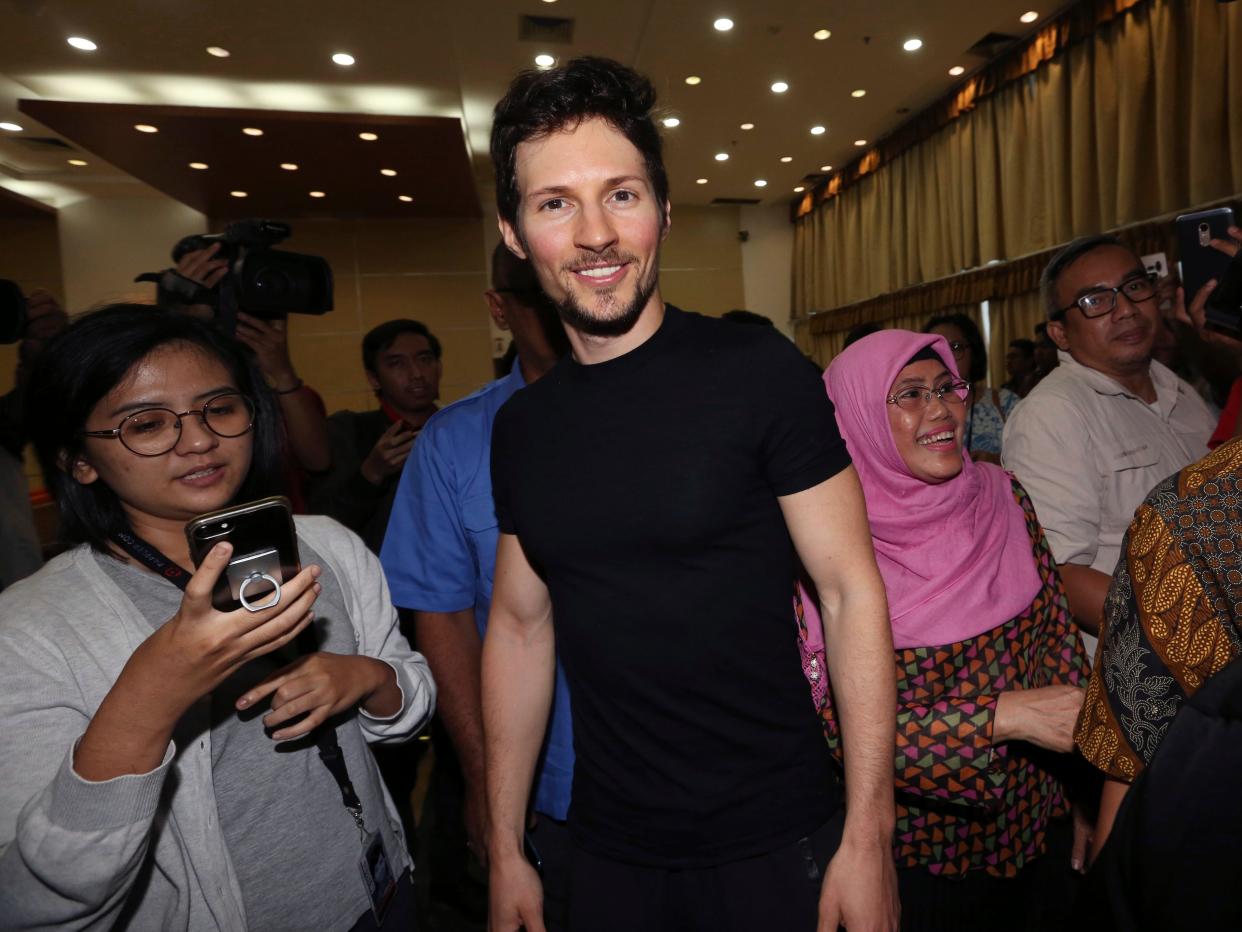
Durov, who was born in St. Petersburg in Soviet Russia, is worth $15.5 billion, according to Forbes.
The tech entrepreneur cofounded encrypted-messaging service Telegram with his brother Nikolai in 2013. The brothers were born into a family of intellectuals, according the Digital-Life-Design Conference website. Durov spoke at the conference in January 2012.
Much of Durov's wealth comes from Telegram, which has 950 million active users and is valued at over $30 billion.
Before founding Telegram, Durov founded a Russian social network called Vkontakte.
Durov created the network in 2006 and sold a 12% stake for $300 million in 2015.
The site brought him fame: He became known as Russia's "biggest celebrity entrepreneur," according to The New York Times. But it also came with political trouble when Durov refused the Kremlin's demands to access Vkontakte data on Ukrainian protest leaders.
Durov said he was fired in April 2014 from his position as the CEO of Vkontakte as state-backed entities sought to control the network, Reuters reported. The Mail.Ru group, which is owned by oligarch Alisher Usmanov, bought the network for $1.47 billion later that year.
Usmanov's press service told Business Insider the group sold Vkontakte. State-run insurer Sogaz now owns it.
Durov told the Times he was forced to leave Moscow in 2014 after a SWAT team appeared at his home.
Durov's conflicts with the Kremlin didn't end with Vkontakte.
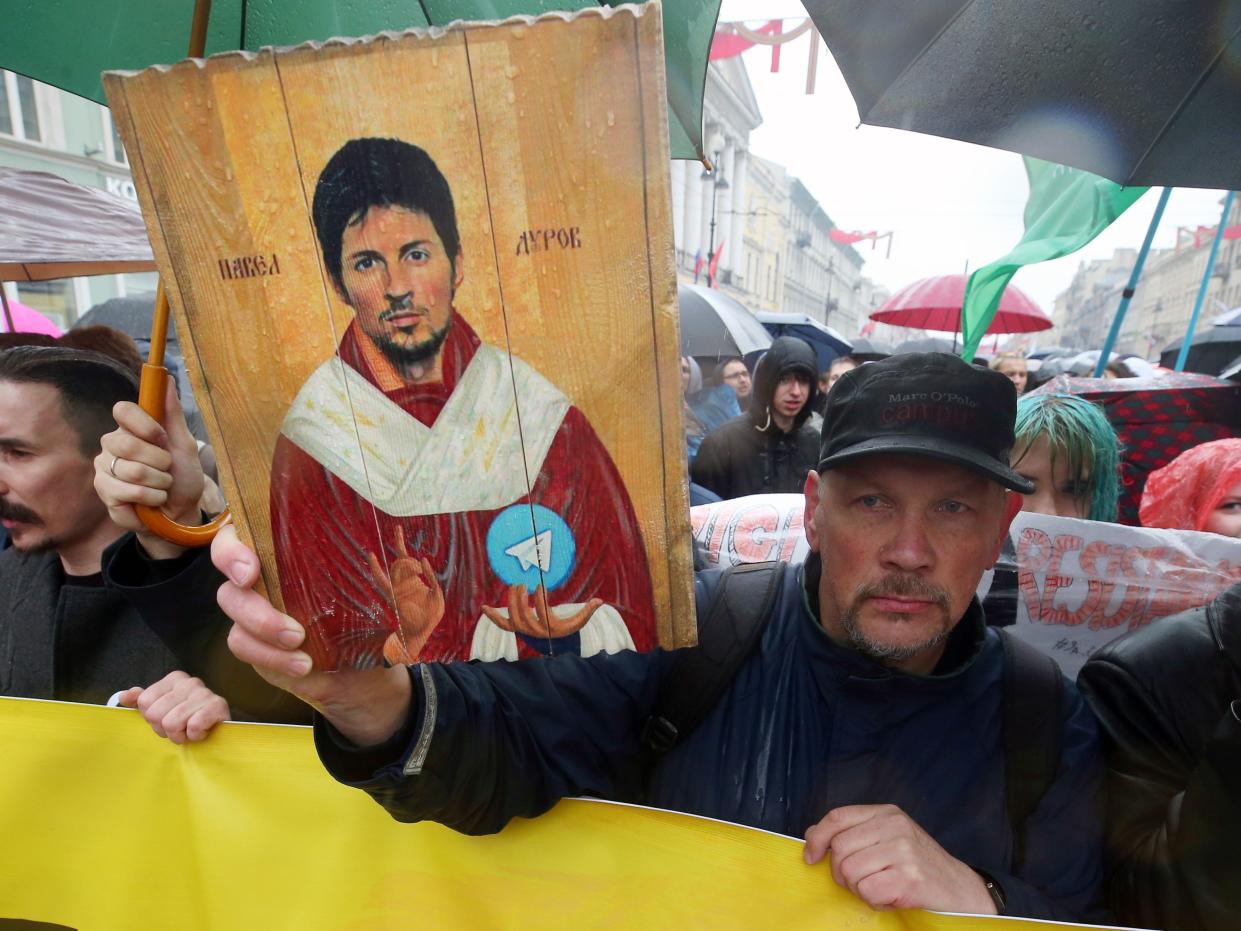
In 2018, Telegram was banned in Russia after Durov denied the Kremlin access to user data. In response to the ban, hundreds of people protested, some of whom held signs of Durov illustrated as a saint (pictured above). The app was reinstated in Russia two years later.
Today, Telegram is playing a major role in the war in Ukraine.
Durov vowed in a Telegram post in March 2022 to protect the data of Ukrainian users. Durov is of partial Ukrainian descent, according to the post.
"When I defied [the Kremlin's] demands, the stakes were high for me personally," Durov wrote. "I stand for our users no matter what. Their right to privacy is sacred."
Durov also launched a cryptocurrency wallet, called Fragment, in 2002. Durov has said the wallet "took only 5 weeks and 5 people including myself to put together."
Durov said some $50 million worth of usernames were purchased less than a month after Fragment launched.
Durov now lives in Dubai, where Telegram's operations are based.
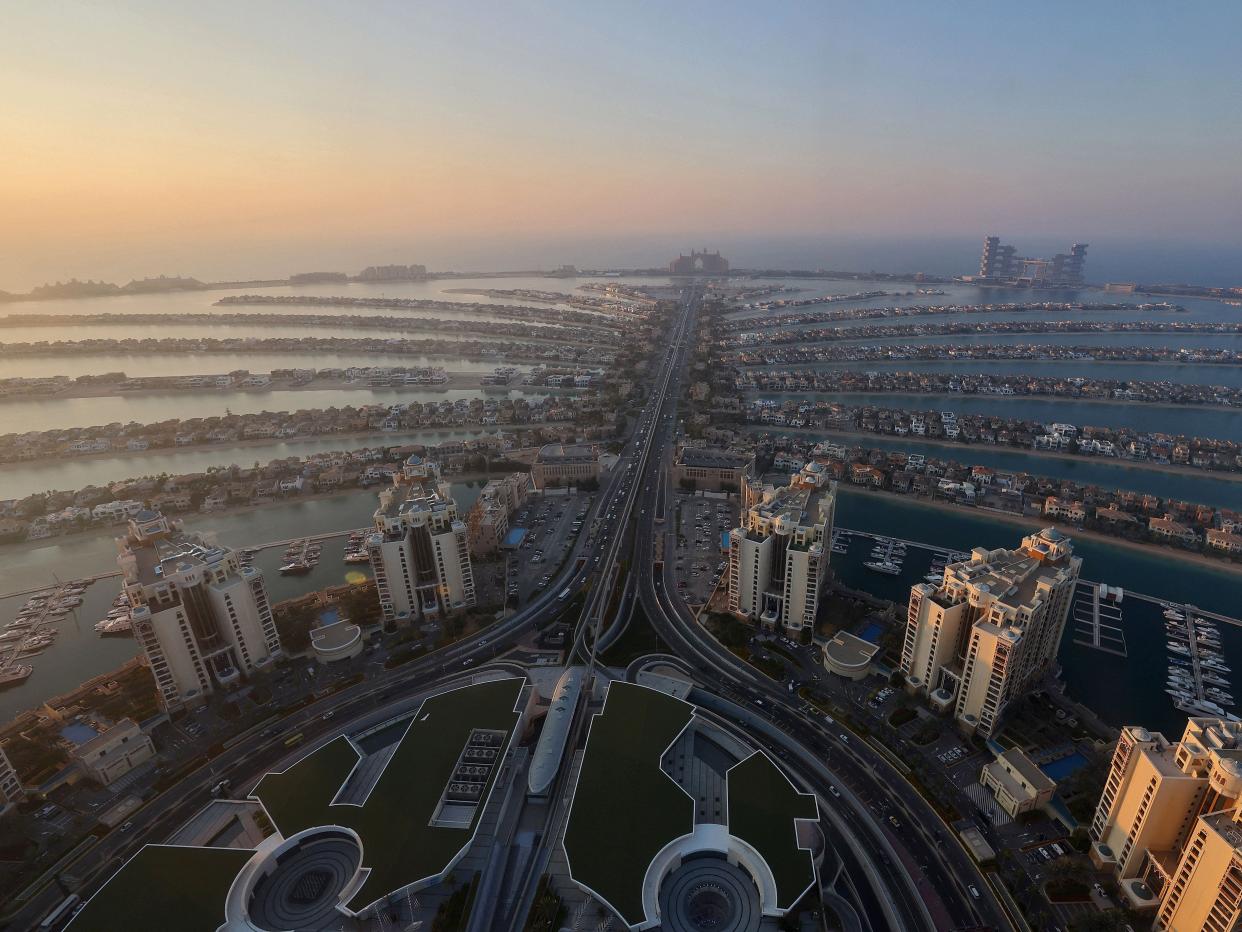
Durov moved to Dubai in 2017 and relocated Telegram's operations to an office in Dubai's Media City, according to Bloomberg. The network had been previously been based in Berlin.
In an interview with Bloomberg in December 2017, Durov said moving to Dubai afforded him "better ways to use [his] money to benefit society," as the city has no personal income tax.
According to the Russian edition of Forbes, Durov obtained citizenship in the United Arab Emirates in February 2021 and was naturalized as a French citizen in August 2021.
In January 2018, Durov wrote on Twitter that Telegram is "unlikely to ever consider any location be [its] permanent base."
Durov has a lively social media presence.
In August 2017, Durov's Instagram post parodying Russian President Vladimir Putin went viral.
Durov's post on Instagram, aptly named the "Putin Shirtless Challenge," called for users to post photos of themselves bare-chested in the style of Putin.
"Two rules from Putin — no photoshop, no pumping. Otherwise you're not an alpha," Durov wrote in the post in August 2017. Over 3,000 posts with Durov's hashtag were uploaded on Instagram.
Despite having 2.5 million followers on X, Durov doesn't follow anyone, but once followed Elon Musk.
While not much is known about Durov's assets, he's been known to share the occasional yacht shot on Instagram.
Durov shared a photo from the deck of a Lurssen yacht off the coast of Italy in 2016.
The cost of a Lurssen yacht starts at about $1 million and can run as high as $185 million, according to Yacht World. Durov never confirmed if he owned the Lurssen yacht in the photo.
Durov said in an Instagram post in August 2016 that while he wasn't a "fan of giant Lurssen yachts," he liked the manufacturer's sailing vessel.
Durov posted another photo of a superyacht on Instagram in 2015. And in another post in 2022 on his official Telegram account, Durov claimed he doesn't own any private jets, yachts, cars, or houses, adding that he is "unlike most billionaires."
Durov's profile was once found on Tinder in 2017.
Bloomberg reported that Durov was "half-naked" in his profile photo on the dating app.
"Not looking for anything serious or not serious here," he wrote on his profile, according to Bloomberg. "Just playing with the app."
Durov was once married to Daria Bondarenko, who he met at university, according to Russia Beyond, citing a documentary on Durov by filmmaker Rodion Chepel.
Durov once said Silicon Valley has "limited cultural life."
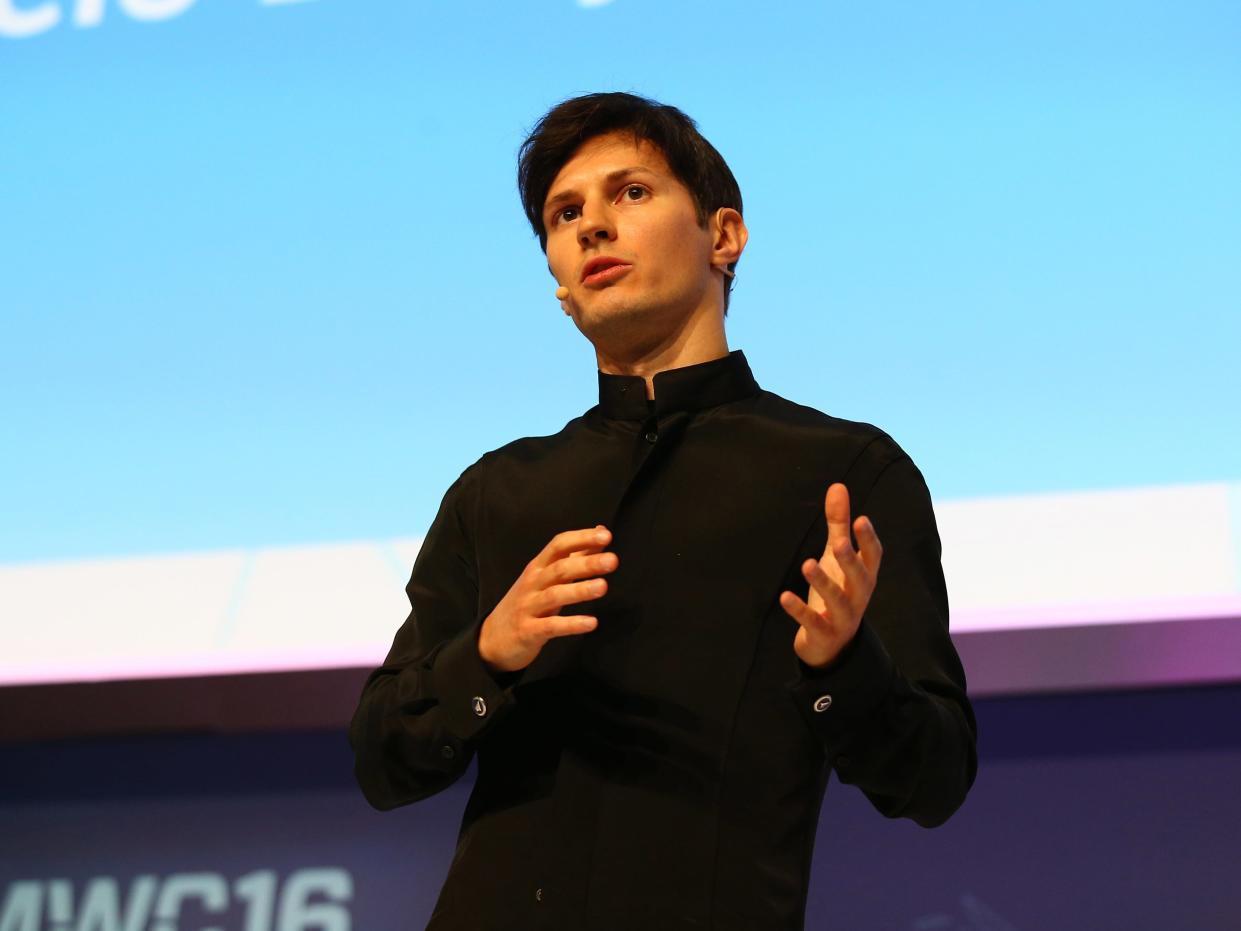
Durov was writing in response to journalist and YouTuber Yury Dud's film about Silicon Valley. The film has garnered 52 million views on YouTube.
In the post, Durov listed seven reasons he did not want to move to Silicon Valley.
"The US is not the best place to live or run an IT business," Durov wrote. "Local programmers are expensive, spoiled and often unable to focus on work due to the flow of outside suggestions and ideas."
Durov also described the United States as a "police state" and said he was attacked in San Francisco in June 2015 by thieves who wanted to steal his phone.
Durov is dedicated to keeping Telegram secure for all its users, no matter who they are or what they are doing.
—Pavel Durov (@durov) March 18, 2017
Telegram is the "app of choice" for terror networks like ISIS, according to the Middle East Media Research Institute. But Durov has so far refused to limit access to the app or moderate its content to deter any certain group.
"We cannot make messaging technology secure for everybody except terrorists," Durov said in an interview with CNN in February 2016. "It's either secure or not secure."
Durov is also something of an instigator on his personal accounts.
In 2014, for example, when the Russian state called for a ban on Vkontakte, Durov's response was to post a photo of a dog in a hoodie on Twitter.
When Vkontakte was accused of hosting pornography, he changed his Twitter handle from "VK CEO" to "Porn King," according to The Calvert Journal. And in 2017, he shared his passport photo on Twitter, writing that it's "strangely suitable for media articles about terrorists using Telegram."
French police arrested Durov amid an investigation into Telegram.
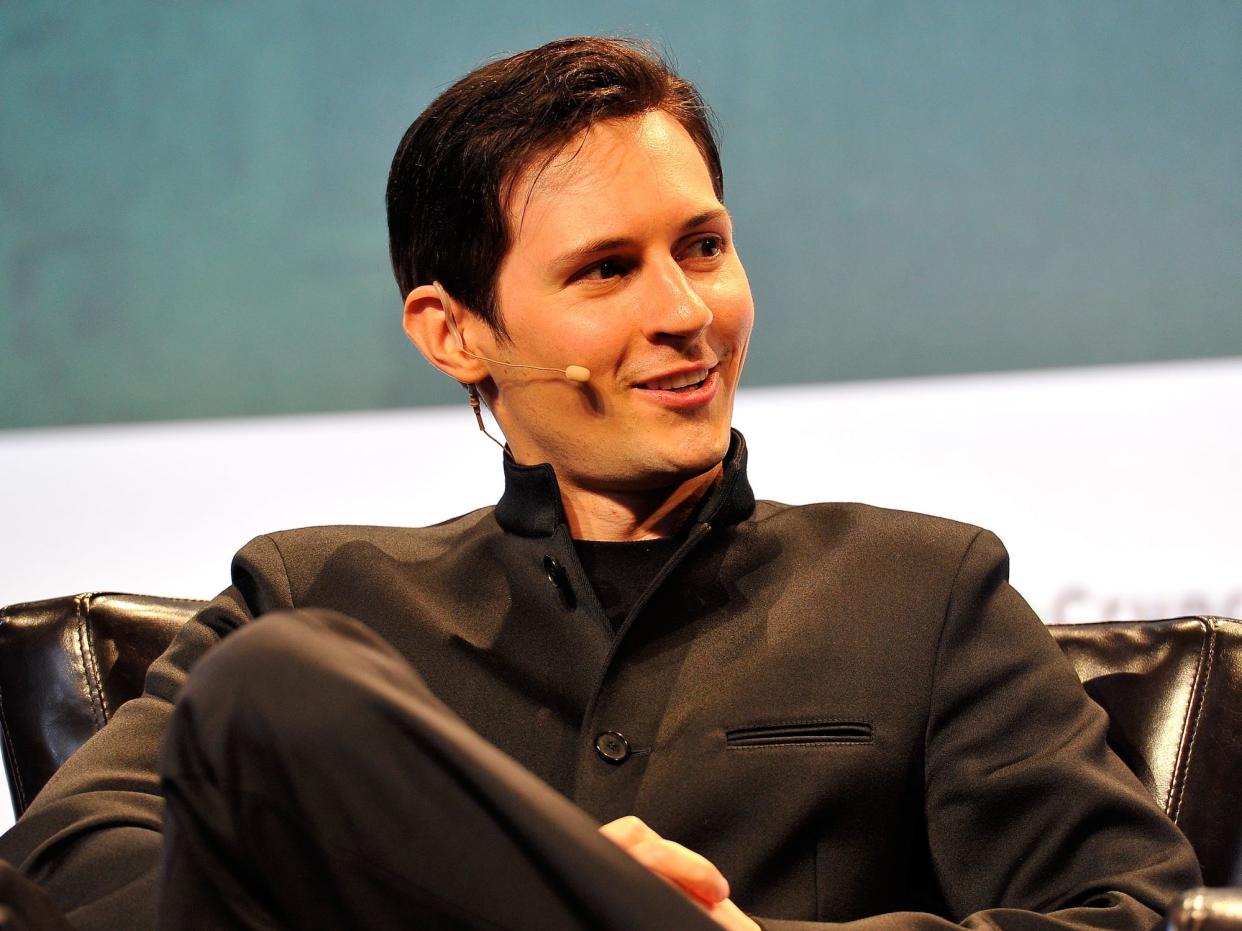
French authorities arrested Durov near Paris on August 24, 2024 amid an investigation into criminal activity on Telegram. Police nabbed Durov at Le Bourget airport as he tried to depart on his private jet.
An arrest warrant said Telegram had been used for money laundering, drug trafficking, and crimes against minors, among other offenses, the Associated Press reported.
Elon Musk, the owner of X who has also resisted moderating content, called the incident evidence of "dangerous times."
Durov calls arrest a "misguided approach" in a post on Telegram.
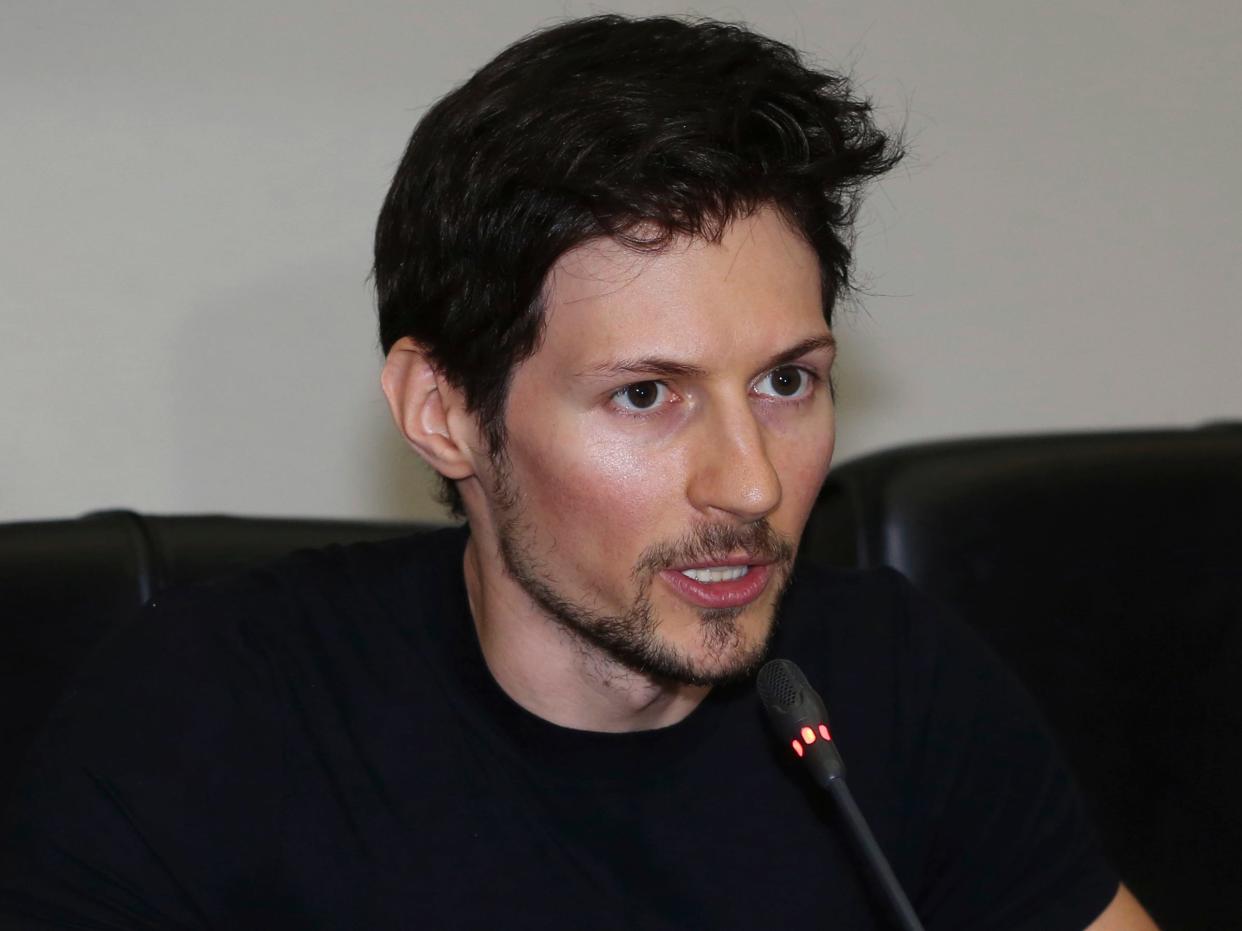
"Using laws from the pre-smartphone era to charge a CEO with crimes committed by third parties on the platform he manages is a misguided approach," he wrote. "Building technology is hard enough as it is. No innovator will ever build new tools if they know they can be personally held responsible for potential abuse of those tools."
He admitted that as the platform accrued a user base of 950 million, it faced some "growing pains" that made it easier for criminals to abuse. But the "claims in some media that Telegram is some sort of anarchic paradise are absolutely untrue," he said.
He said the platform takes down millions of posts and channels daily and has already started an internal process to combat the spread of criminal activity.
Telegram has been banned in several countries over the years, including Iran, China, Thailand, and briefly in Russia. In his latest remarks, Durov reiterated that it would not compromise its principles to meet government regulations.
"We are prepared to leave markets that aren't compatible with our principles, because we are not doing this for money," he wrote. "We are driven by the intention to bring good and defend the basic rights of people, particularly in places where these rights are violated.
Read the original article on Business Insider




